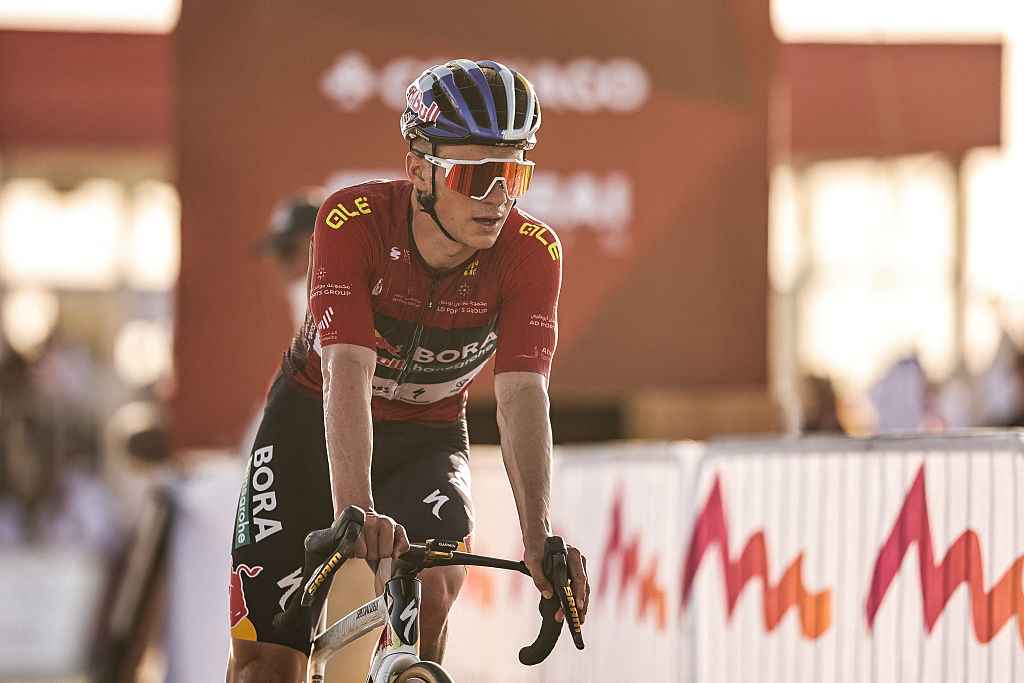Bookwalter: We don't know what next year is going to hold
BMC veteran talks about the team's future, his own ambitions and taking on rider-safety issues
The latest race content, interviews, features, reviews and expert buying guides, direct to your inbox!
You are now subscribed
Your newsletter sign-up was successful
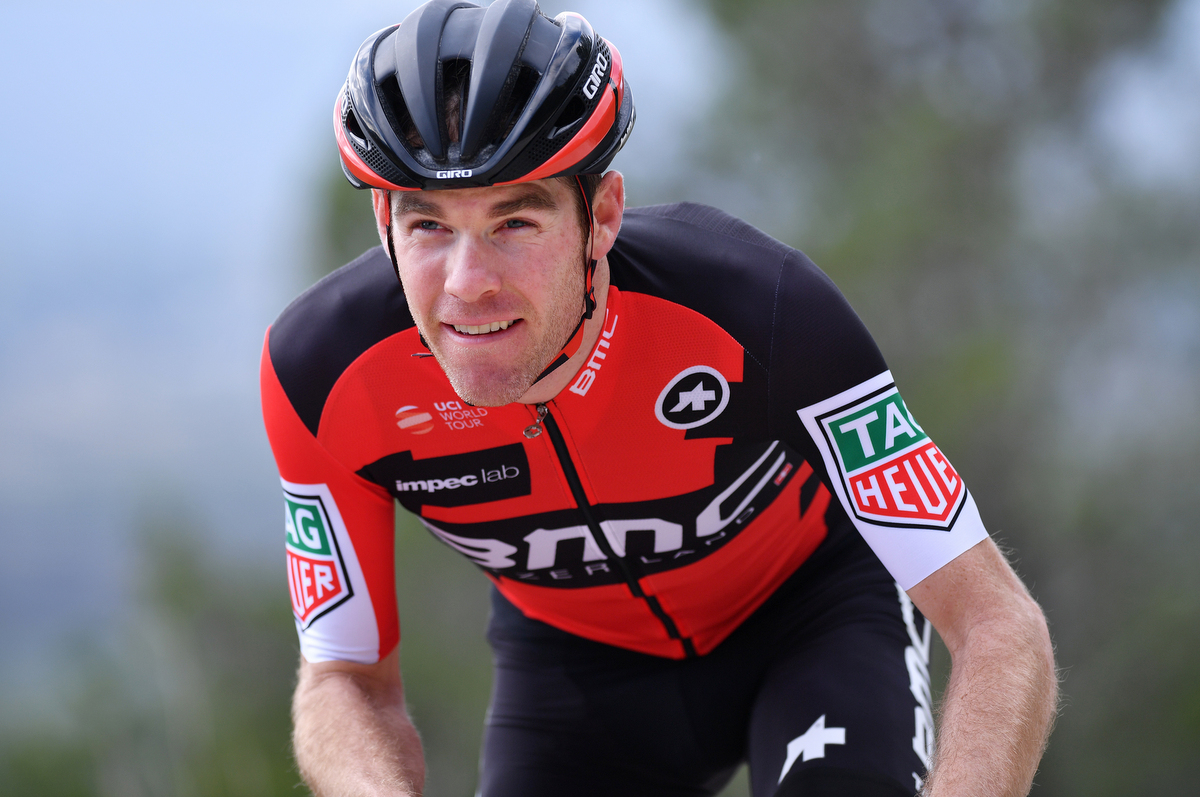
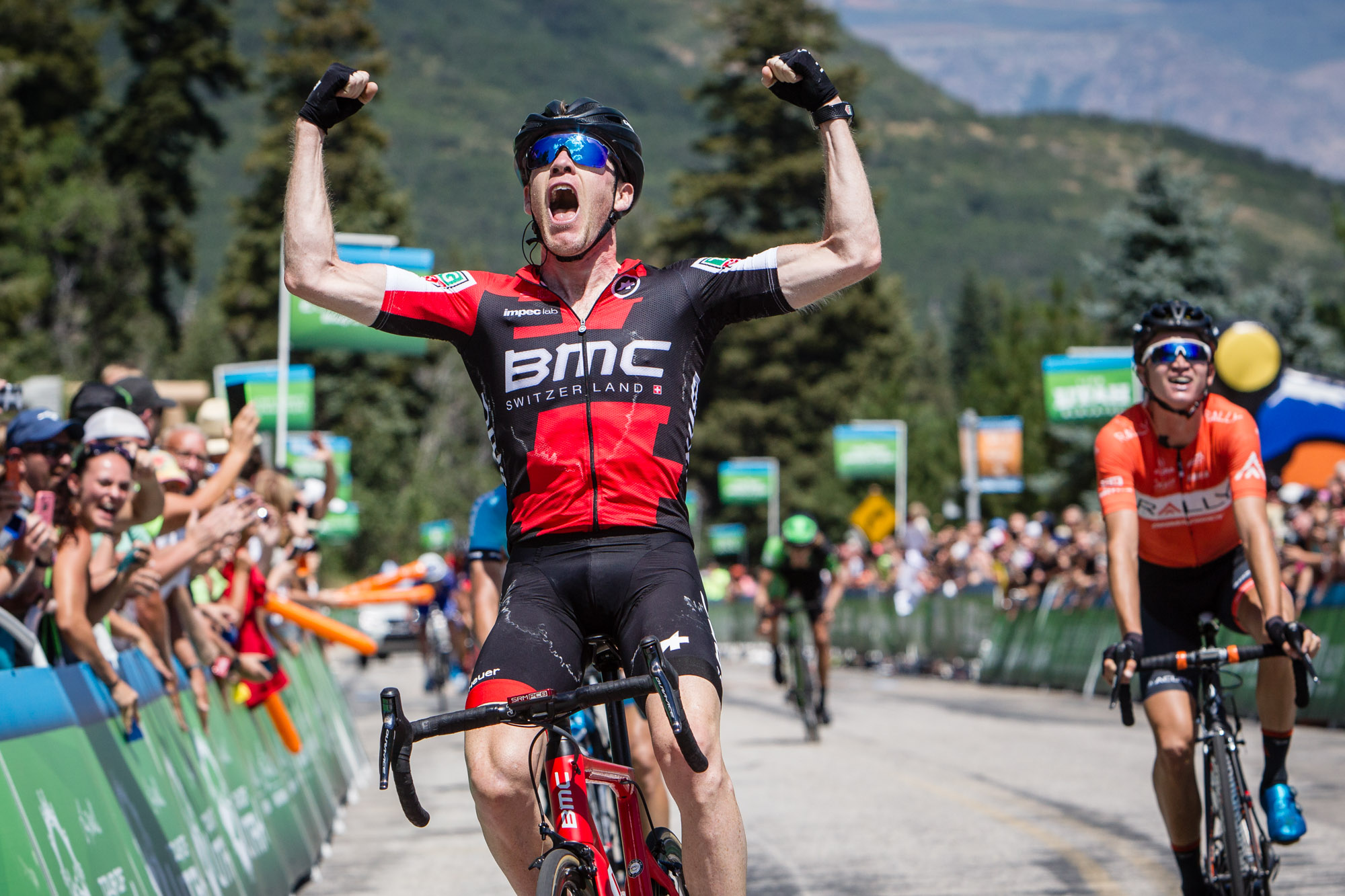
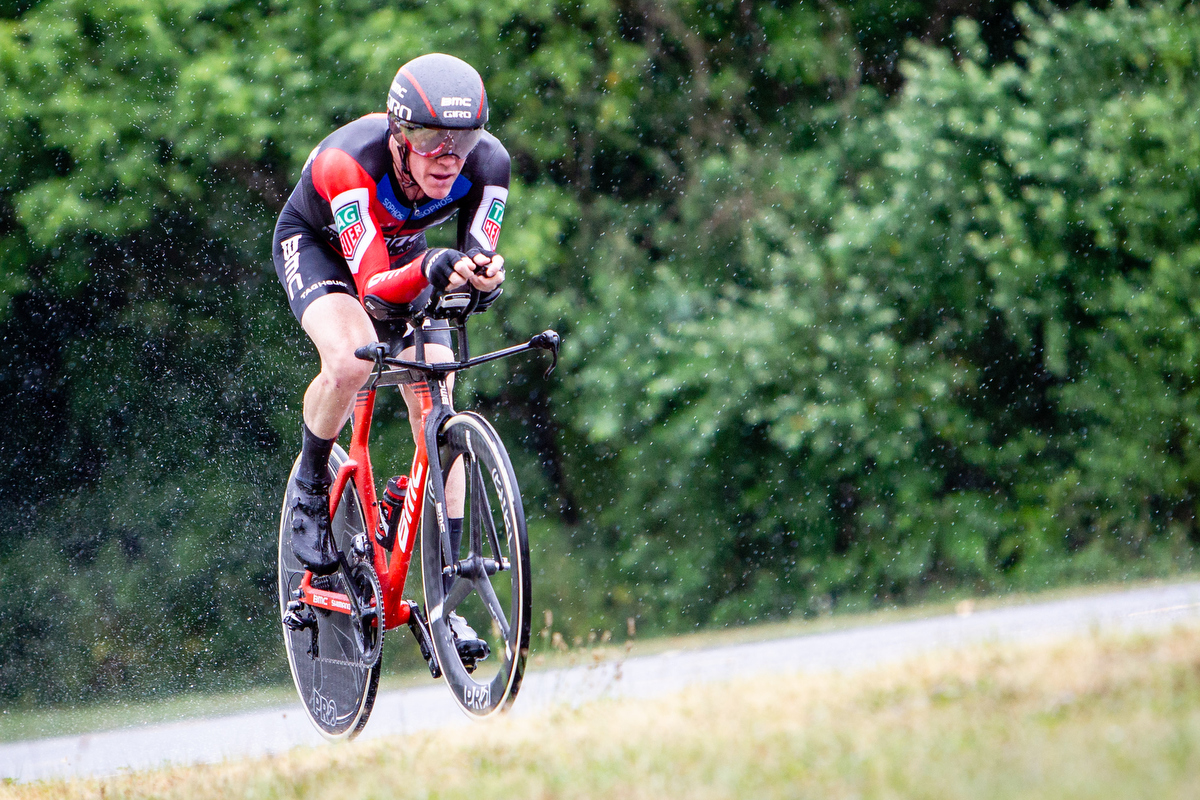
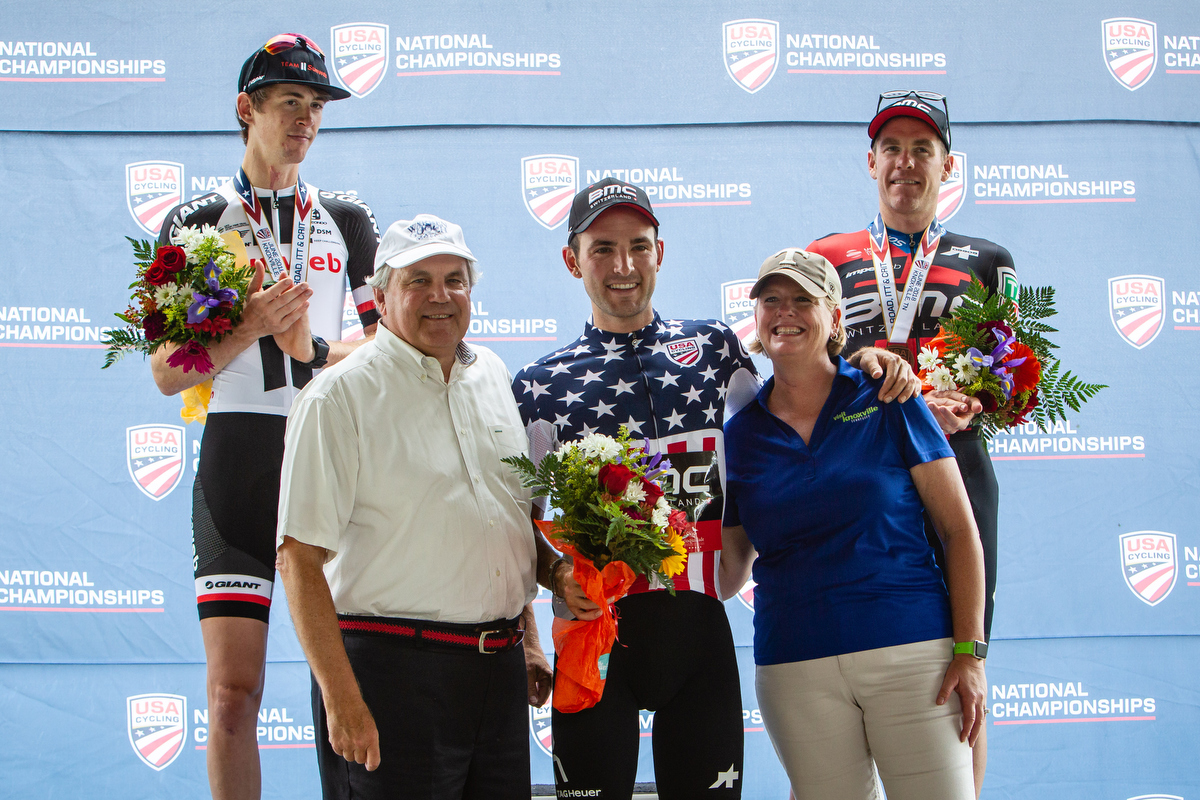
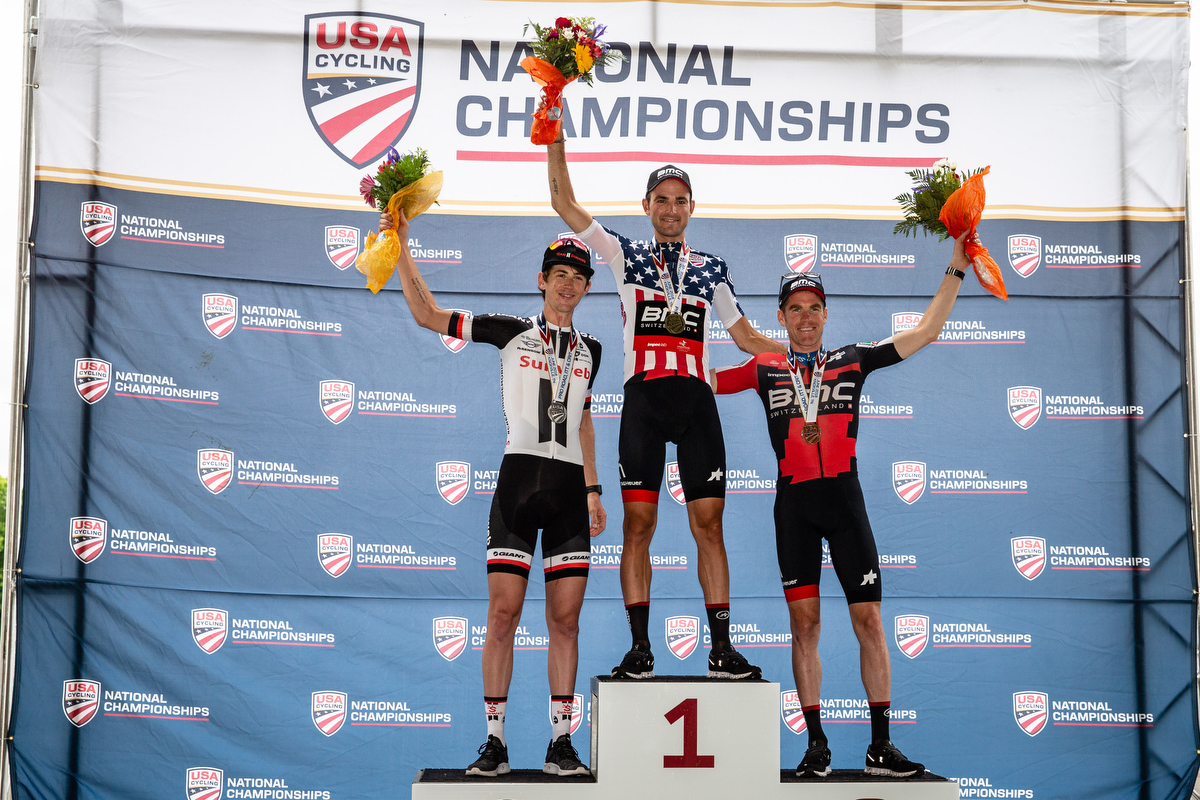
BMC Racing's Brent Bookwalter is a rare creature among pro cyclists, having spent his entire WorldTour career on the same team. Of the 34-year-old American's 13 professional seasons, dating back to 2005 on the US domestic circuit, the past 11 have been with BMC.
Over those years, Bookwalter has developed into the consummate domestique, having helped guide teammates to victory in some of cycling's biggest races. He's also become one of the top advocates for rider safety, taking up a battle for change in a sport that is notorious for desperately clinging to the status quo.
News that the team is still without a title sponsor for next year have called into question the program's future, and threatens to bring and end to Bookwalter's unusually long tenure there.
Cyclingnews caught up with Bookwalter last week at the USA Pro Road Championships in Knoxville, Tennessee, where he finished third in the individual time trial and seventh on the road race, a brutally hot and difficult race that saw less than 20 finishers from a start list topping 120 riders. The transcript below was edited for length.
Cyclingnews: You are one of the few WorldTour riders who's been on the same team your entire WorldTour career, maybe the only one.
Brent Bookwalter: I was trying to think, too. I think there might be an Italian or French guy floating around that's kind of gone with the same - I mean the teams change names - but the same management or whatever. But yeah, it's definitely an anomaly.
CN: To what do you attribute that longevity?
The latest race content, interviews, features, reviews and expert buying guides, direct to your inbox!
BB: I guess a lot of things. It's really all about the balance and fit, which means it's going to have a ton of factors. A lot of it you can attribute to timing, and the growth of the team sort of coinciding with my growth.
I look at some of our young guys on the team now, and I thought if I had come into this organisation at their age, there's no way I would have survived because the team operates at such a high level now, and the pressure is so high and the demands are great. It's a pretty harsh development environment.
When I came to the team it was a much smaller program - still big ambitions - but it was Pro Continental and more American. It still had that American identity and culture, with some Europeans, which was good because it sort of progressed me into it. So that was really big.
Personally, I think I'm a loyal guy. I'm not someone who is always trying to reinvent the wheel or looking for where the grass is greener or for the latest and greatest new shiny toy. I'm from the Midwest, a Michigan guy, just sort of bread and butter.
CN: And they've returned that loyalty to you as well.
BB: I think that's been recognised and appreciated over the years, or obviously I still wouldn't be here. They've appreciated what I've offered to them and kept me loyal.
That said, it hasn't been without its challenges. I think I've had to sort of really adapt and reinvent myself. I think part of that longevity is me being aware of the organisation that's changing around me and trying to anticipate or react to how I could change myself or still provide value to the team.
It took me a little bit. There were a couple hard years in there where I kind of thought I could just keep plugging along as I had been, and I had to smack myself and wake up and say, 'It's not the same now as it was three years ago.'
That could be said all through the past 11 years. Every couple of years it rotates and changes a little bit, and there are different people of influence in the team that carry power and weight, and you have to play the game.
CN: So you have to adjust to what's expected of you and how that's changing within the team? You seem to have managed that well.
BB: It's still a fight and a battle, but I'm happy here and comfortable here. But when I say comfortable I don't mean sitting back and complacent, like, 'Yeah, I'm just riding it out. Just because I've been here 11 years I can do five more,' because it just gets more and more competitive, and guys who are coming up are hungry.
I think consistency and dependability is a good thing, but it's also not flashy. Everyone likes new stuff. You get a new shirt, you get a new bike. It's the same when teams get new riders. A new rider brings a sort of unknown mystery and potential that they're not aware of and they're excited about. So when I'm not bringing that to the table over a decade, that's something I have to overcome.
CN: With the team's sponsorship issues not being settled yet, have you started to think about what life might look like if there's no BMC next year?
BB: Yeah. It's been a sort of harsh realisation that I've had to confront. Obviously it was really sad having Andy [Rhis] pass away a few weeks ago. The team's future wasn't even secure when he was still with us, but that and 'the all good things must come to an end' cliché can hold true here.
We don't know what next year is going to hold, so I've had to sort of - yeah it would be weird not to be throwing my leg over a BMC bike. And it would be weird not to be with - a lot of the faces have changed but there are a lot of familiar ones to, like the Santa Rosa gang. Gavin Chilcot is still out there, our mechanic Ian, he's been here since the beginning. Our director Jackson [Stewart], we were teammates back in 2008 and 2009 on BMC. So there's a lot of good, consistent, great people involved. So, yeah, it's weird, but I have started to think about it and frame my mind and prepare myself and be open to it.
I think, just like I said, when the team gets a new rider they're excited, and although I've been happy here and I can see myself being happy here continuing, there also is a side of it where I think it will be really sad and disappointing and sort of an era coming to an end, there's also the promise of new invigoration and new energy. That could be a good thing too.
CN: It doesn't have to be a 100 per cent bummer and bad news.
BB: No, no. It's not like I'm in a place in my career where like if this team doesn't continue, that means I'm out. I feel like I have a lot of good years left in me, and I think I have a lot to give as a rider myself and also as a teammate, and someone who's travelled the steps of an organisation like this. We started small and grew to a pretty ambitious high level, and hopefully if it comes to that, if the team isn't around, if the situation requires me to go somewhere else, I'd like to look forward to bringing that to them?
CN: You mean as someone who's already gone through the growing pains with a team that started small?
BB: Yeah, I'm excited for sure to share what I have with the young riders. I feel like with this team in the last few years I've come into my own a little bit as more of a mentor and veteran guy, and to pass things on to the young guys. I look forward to doing that no matter where I am.
CN: Have you thought about what kind of team, attitude-wise and structure-wise, that you're looking for?
BB: Yeah, a little bit. We have so much good going at BMC, there's a lot of that I'd just like to see, if it didn't exist here I'd like to see it somewhere else. But I don't want to go to a team or an organisation where I'm just there as assassin number six, sniping results and putting out watts, you know, just filling this mechanical robotic role. I don't want to be climber three or roleur two. I want to go to a team as Brent and bring the experience that I have and the personality that I have, the charisma that I have and my riding ability.
I want that to fit into an organisation, and, ultimately, I think that's how we get the most out of each other, too, whether it's me getting something from the team or the team getting something from me. It's a personal fit as much as a professional fit.
I'd like to be in an organisation where I can pursue my personal ambitions and work for the team, as I know I still have more in me as far as personally achieving and even leading a team when the opportunity arises, but I also feel I can bring a lot of value in terms of my experience as someone who is working for the sport's best. I still get fired up to put my best on the line for teammates.
There's not a whole lot of places, but there's a few good ones out there.
CN: On this issue of safety in cycling and for the riders: How did you kind of adopt that as an issue that you really wanted to pursue?
BB: I'm trying to think about when I really started to sink my teeth into it. It was probably back in 2013, 2014. I'd been involved in a few situations in races where I was sort of at the boiling point, just appalled at what we were going through and just how the sport was set up to respond to and address those situations.
It wasn't necessarily the fault of any one person or race, it's just sort of the culture and the lag of not adapting, not growing with the times. At that time there was momentum picking up with the North American Riders Association. Christian Vande Velde was the guy getting that going in his retirement. So I saw that as an avenue to get engaged and try to use the channels that are in place.
It's flawed, but the CPA, the riders union, does exist, and it has done some good. The structure is there. It set up a joint agreement with the other stakeholders to enact change, so I saw that as an avenue.
I can't sit here and complain about this stuff and be pissed at the officials at the race and be yelling at race directors if I'm not going to try and be part of the solution. So it was really an attitude of seeing myself as having more time in the sport, and I wanted to be involved with the change and not just complaining about the problems.
CN: Do you feel like you're making progress, or are you just constantly beating your head against a wall?
BB: Most of the time I feel like I'm beating my head against a wall. I think most of the guys involved would say that, but there is progress for sure. There has been changes, and even just an awareness and education piece. And a little bit of, even like cultural transitions for riders just to know that there's a difference between just complaining and actually engaging and trying to be part of the solution, like I just said.
So we're trying to share that momentum with the other riders, get everyone to know how the systems in place work. Whether we like it or hate it, there is a structure of governance and rules that exists in this sport, and unless we're going to do a complete revolution and totally overhaul everything, that's what we have to work with.
I think the first steps started to gain some credibility, clout and cohesion, and to enact change with what we have.
CN: There have been a few changes like the 3km rule.
BB: Definitely. We did the 3km stuff, we did the weather protocol a few years ago. I know USA Cycling is working hard on the concussion protocol right now to get going.
It's hard. It's an uphill battle. It's hard to get those tangible rules in the books that are going to play out on the road. As we all know, one of the best things about cycling is how unpredictable and dynamic and diverse it is. We're going through more environments and changes than I think any other sport in the World is in a single day.
So anytime you try to apply a rule to that rolling, perpetually changing environment, it's so hard to enact. But the first thing, like you saw with the weather protocol, was just getting those words in the book and then defining it sort of broadly in the beginning and narrowing it down more and more as we see what's applicable and possible.
We've got a lot of work to do still, but we're chipping away. I think more and more riders are getting involved. Even this prize money thing that's going on right now. I don't know if you're following that, but I'm sort of rolling my eyes at that to the extent that I feel like we have more pressing issues as a sport other than who collects and distributes our prize money. But the good thing about it is that there are riders who are slamming their fist on the table and getting out of their chairs for the first time to say, 'Hey, this isn't right.'
I'm like, 'Alright, good. At least they're standing up. We've got their attention now.' So hopefully we can translate that enthusiasm into some other topics that mean more lasting change out on the road.
Growing up in Missoula, Montana, Pat competed in his first bike race in 1985 at Flathead Lake. He studied English and journalism at the University of Oregon and has covered North American cycling extensively since 2009, as well as racing and teams in Europe and South America. Pat currently lives in the US outside of Portland, Oregon, with his imaginary dog Rusty.
